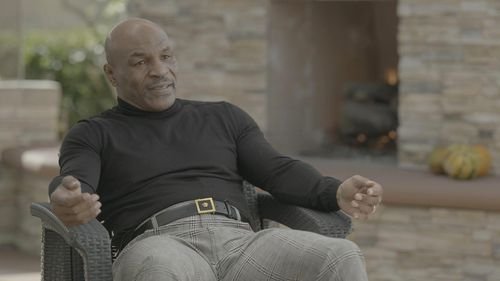‘Mike Tyson: The Knockout’ doesn’t live up to its title, but the ABC documentary wins on points

“Mike Tyson: The Knockout” initially feels like it’s simply retracing the same old steps, charting the boxer’s epic rise, fall and attempted comeback. After the first few rounds, though, this two-part ABC documentary lands some pretty compelling blows, particularly in highlighting the difference 25 years made in terms of Tyson’s third act following his rape conviction.
The opening proves considerably less distinctive, beginning with the 1988 championship bout against Michael Spinks, flashing back to Tyson’s rough upbringing before channeling that into boxing under the tutelage of trainer Cus D’Amato. For anyone who followed his career, it’s pretty familiar stuff.
The project draws strength, however, from the breadth of its interviews, including several Tyson opponents, before culminating with a fairly unilluminating chat with Tyson himself — a relatively short coda that would have been stronger had it been spread throughout the presentation.
As is, “The Knockout” proves most interesting in portraying the media’s role in building Tyson up and tearing him down, from the Barbara Walters interview with him and his then-wife Robin Givens to the frenzy that surrounded his rape trial, after he was accused of assaulting pageant contestant Desiree Washington.
Noted attorney Carl Douglas argues that Tyson’s attorneys “chose a really insidious defense” in his case — one complicated by the long history of trumped-up sexual-assault allegations against Black men, the difference being that the victim was an African-American woman. Similarly, Danyel Smith of ESPN’s The Undefeated states that it was “beyond unfortunate” that Givens’ domestic-assault claims were turned her into fodder for latenight comics who portrayed her as a gold-digging villain.
The most sobering aspect of the documentary, however, might be Tyson’s post-prison career. As ESPN’s Jeremy Schaap points out, Tyson met a very different environment when he emerged from prison in 1995 than he likely would have today, with boxing welcoming him back in a way that “allowed him to maintain his relevancy.”
Tyson’s fading boxing skills — and the bizarre ear-biting incident in his rematch with Evander Holyfield — seemingly should have marked the end of the story. Yet Tyson improbably rebuilt himself, beginning with his cameo in “The Hangover,” while surviving hardships that included cocaine addiction and the tragic loss of his young daughter.
Since then, Tyson returned to the spotlight in a Spike Lee-directed one-man show and improbably chose to box again at age 54. Now, there are plans for a Tyson miniseries starring Jamie Foxx — a project that Tyson has already criticized — following the 1995 HBO movie. Clearly, Tyson’s life remains a source of fascination, thanks in part to the larger-than-life characters that surrounded him, including promoter Don King.
Citing the tabloid headlines that followed Tyson outside the ring, New York sportswriter Wallace Matthews says, “This guy basically was reality television way before reality TV was invented.”
If “The Knockout” makes one thing clear, it’s that the media rode the Tyson roller coaster for all that it was worth. While nobody really asked for this latest rematch, its insights regarding Tyson’s story — reflecting both the era during which he thrived, and how it looks with the benefit of hindsight — isn’t quite a knockout, but it wins on points.
“Mike Tyson: The Knockout” airs May 25 and June 1 at 8 p.m. ET on ABC and later on Hulu.